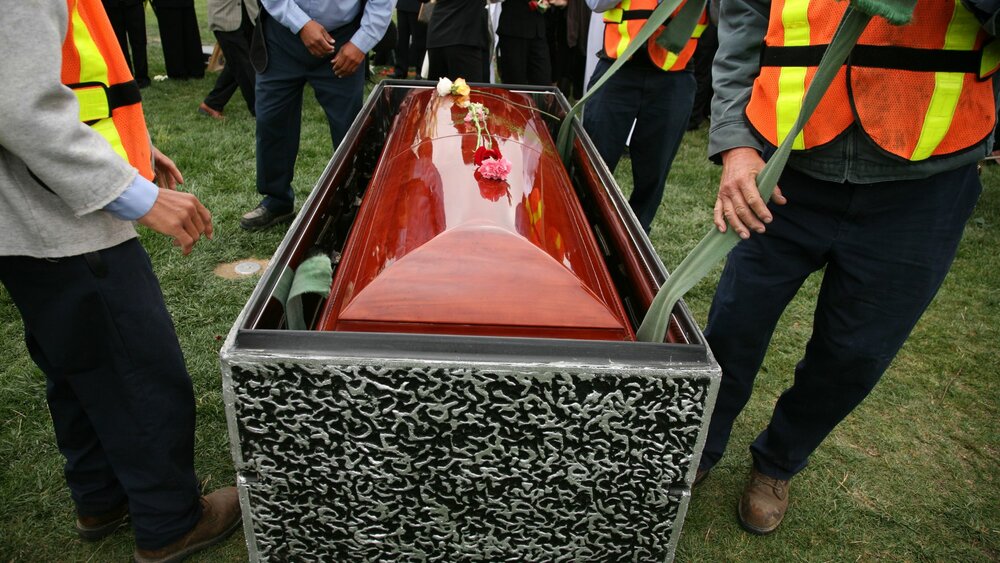Do I Have to Use a Burial Vault for Burial?
When planning a burial, many decisions need to be made, and one of the more common questions is whether or not to use a burial vault. This decision can impact both the cost and the logistics of a funeral. Let's delve into what a burial vault is, why it might be used, and whether it's a requirement.
What Is a Burial Vault?
A burial vault is a container that is placed in the ground to encase a coffin. Typically made of concrete, steel, or other durable materials, its primary purpose is to protect the casket from the weight of the soil and heavy machinery that may pass over the grave. It also helps in preventing the ground from sinking, which can occur as the casket deteriorates over time.
Why Are Burial Vaults Used?
- Protection of the Casket: Over time, soil can put a significant amount of pressure on a casket. A burial vault helps in maintaining the integrity of the casket and protecting it from the elements.
- Ground Stability: By preventing the ground from settling, burial vaults help keep the cemetery grounds looking neat and well-maintained. This can be important in maintaining the aesthetics and safety of the cemetery.
- Regulations and Requirements: Some cemeteries have specific regulations requiring the use of burial vaults or liners. This is often to ensure uniformity and stability within the grounds.
Is a Burial Vault Required?
The necessity of a burial vault can depend on various factors:
- Cemetery Regulations: Many cemeteries have their own rules regarding burial vaults. Some require them, while others leave the choice up to the family. It's essential to check with the specific cemetery to understand their policies.
- State and Local Laws: In some regions, there may be laws or regulations that mandate the use of a burial vault or liner for burials. These laws are often in place to ensure public health and safety.
- Personal Choice: If not required by the cemetery or local laws, the decision to use a burial vault can be a personal one. Some families choose to use them for added peace of mind or to ensure that the gravesite remains undisturbed over time.
Alternatives to Burial Vaults
If a burial vault is not required and you're considering alternatives, here are a few options:
- Grave Liners: A less expensive option, grave liners serve a similar purpose to burial vaults but are not as robust. They typically cover only the top and sides of the casket, offering some protection and preventing the ground from sinking.
- Natural Burial: For those interested in environmentally-friendly options, natural or green burials are gaining popularity. These burials forgo traditional caskets and vaults in favor of biodegradable materials, allowing the body to decompose naturally. However, not all cemeteries offer this option, so it's essential to research and find a suitable location.
- Cremation: Choosing cremation eliminates the need for a burial vault altogether. Cremated remains can be buried in a cemetery plot, placed in a columbarium, or scattered in a meaningful location, depending on personal preference and legal considerations.
Conclusion
Whether or not to use a burial vault for a burial is a decision that involves several factors, including cemetery regulations, local laws, and personal preference. While not always required, burial vaults provide protection and stability, ensuring that the gravesite remains intact over time. By understanding the options available and considering the specific needs of your family, you can make an informed decision that respects both your wishes and those of the deceased.
When planning a burial, it's always a good idea to consult with the cemetery and a funeral director. They can provide valuable guidance and help you navigate the regulations and choices, ensuring that your loved one’s final resting place is handled with care and respect.
For more information - please call Wagg Funeral Home at 905-985-2171 or drop us a line. You can also send us your queries through this Online Form, and we will call you back to answer any questions.


 OFFICE Hours
OFFICE Hours 216 Queen St.
216 Queen St.
Comments